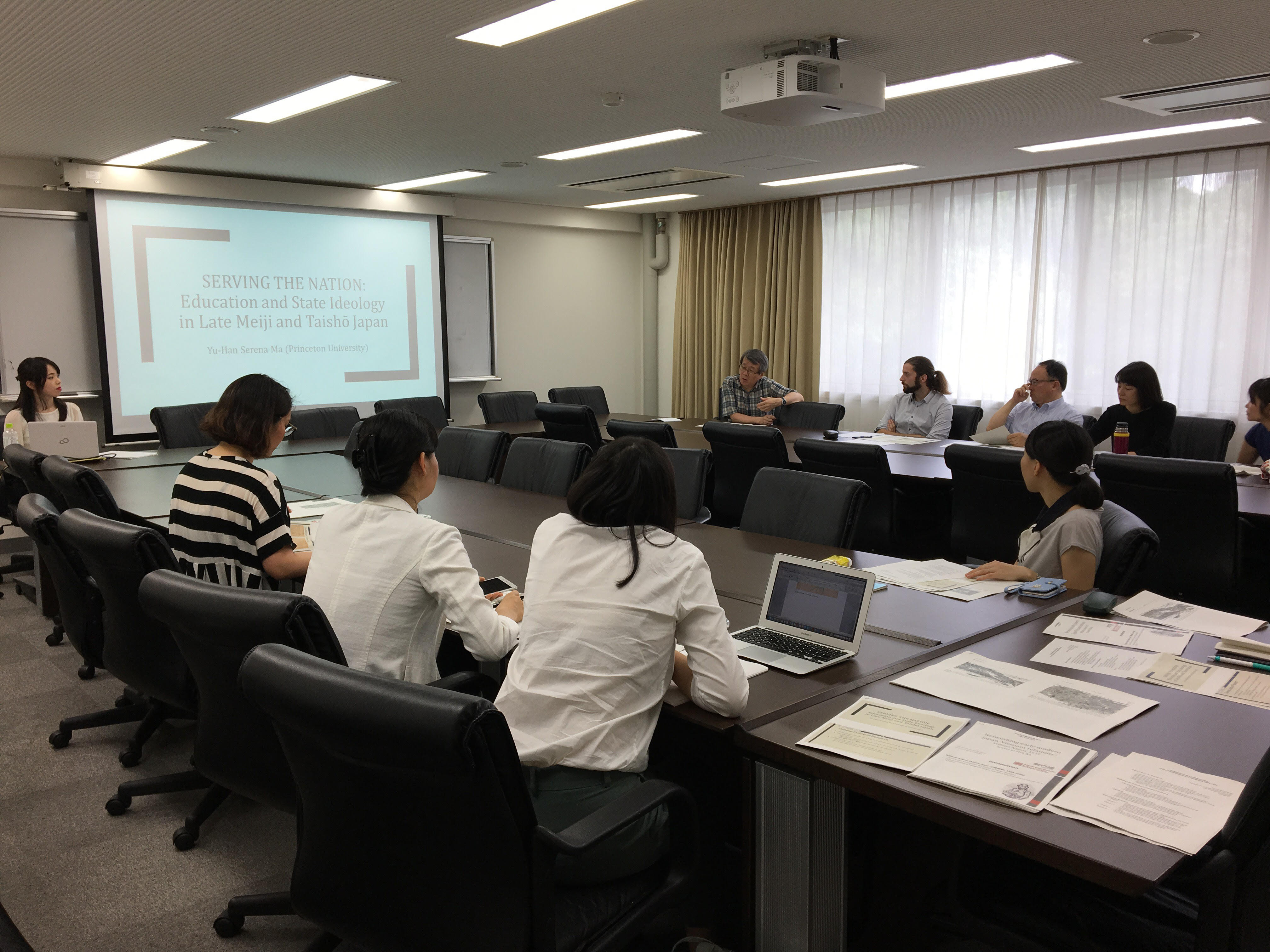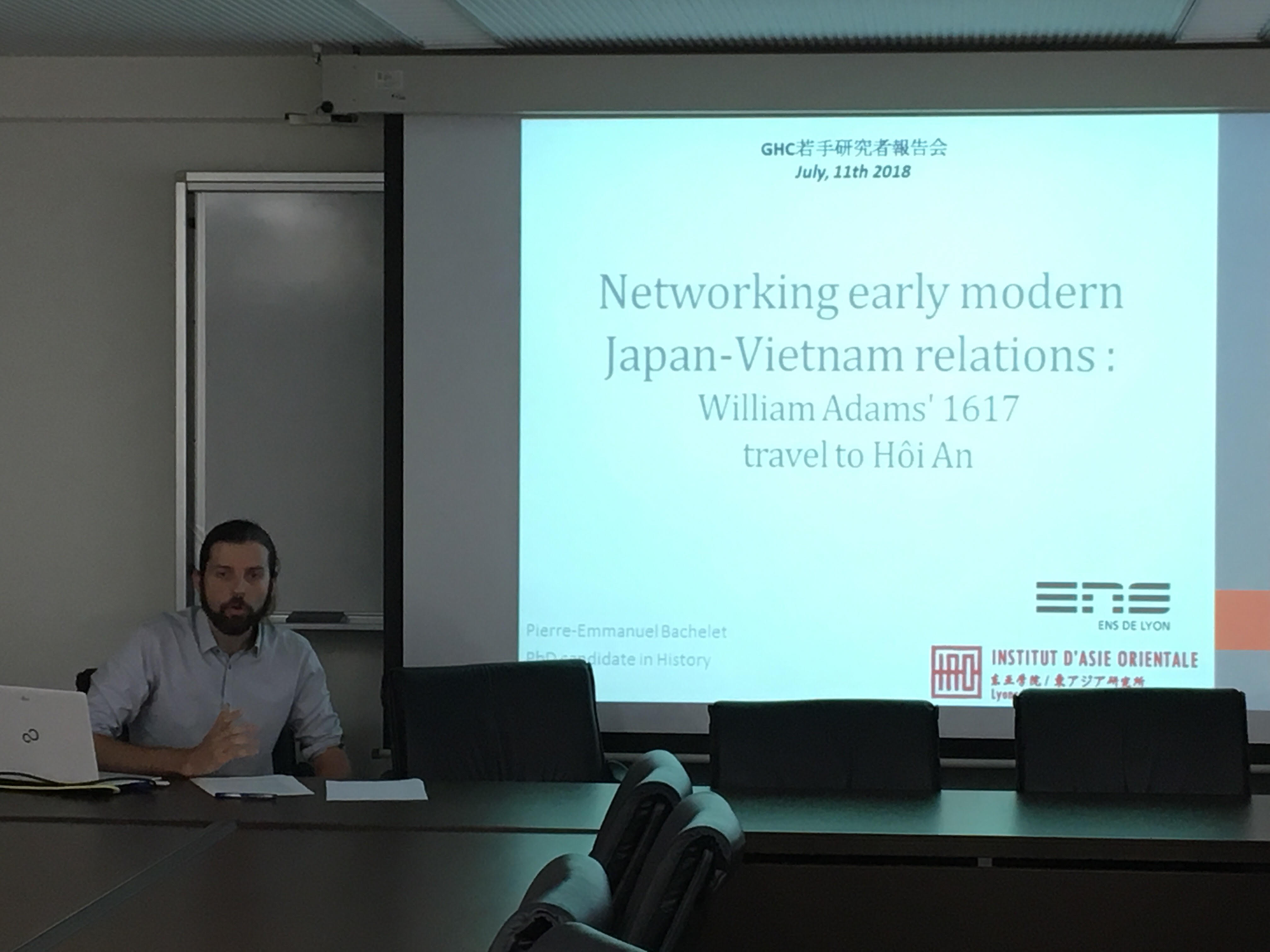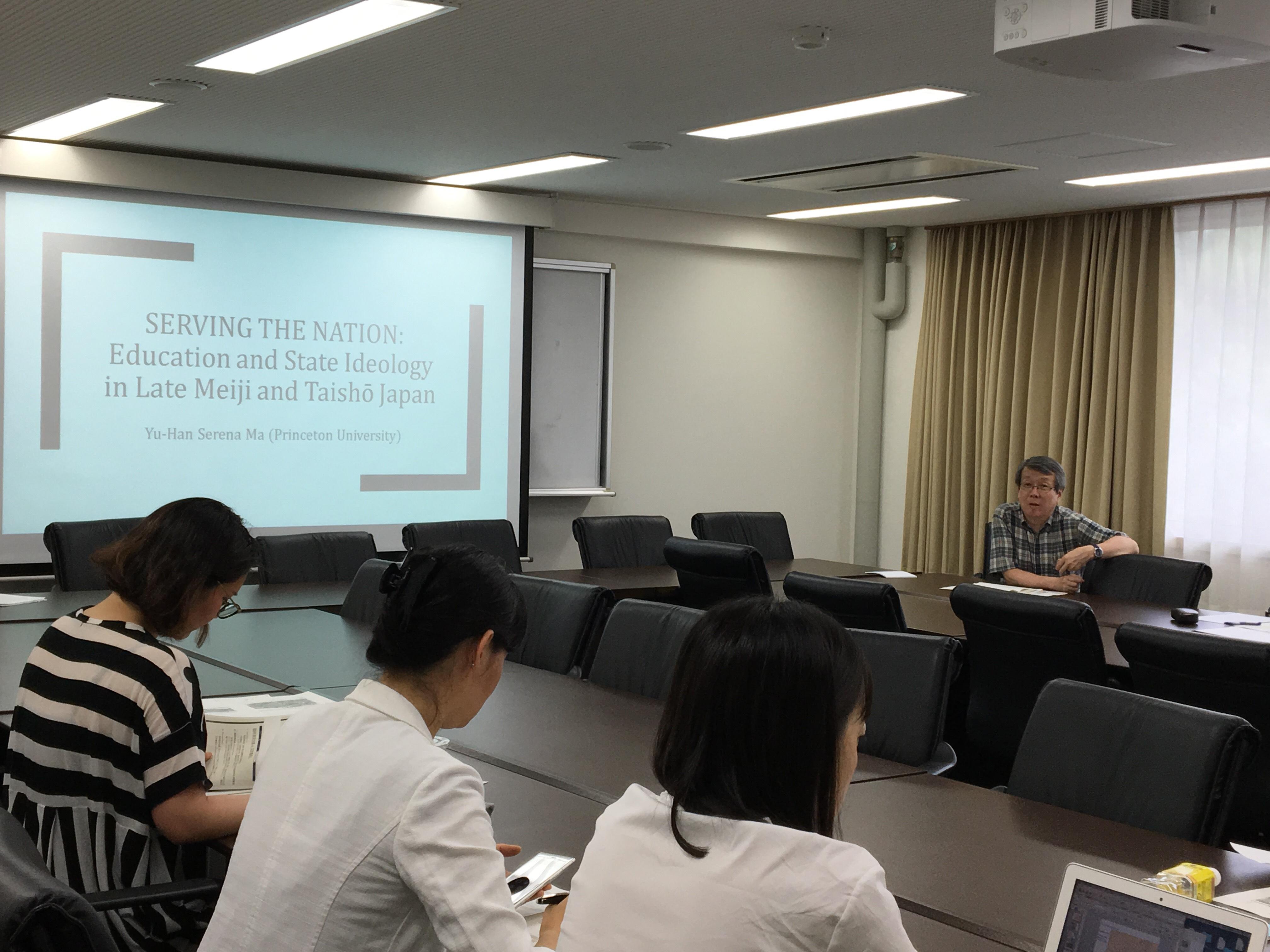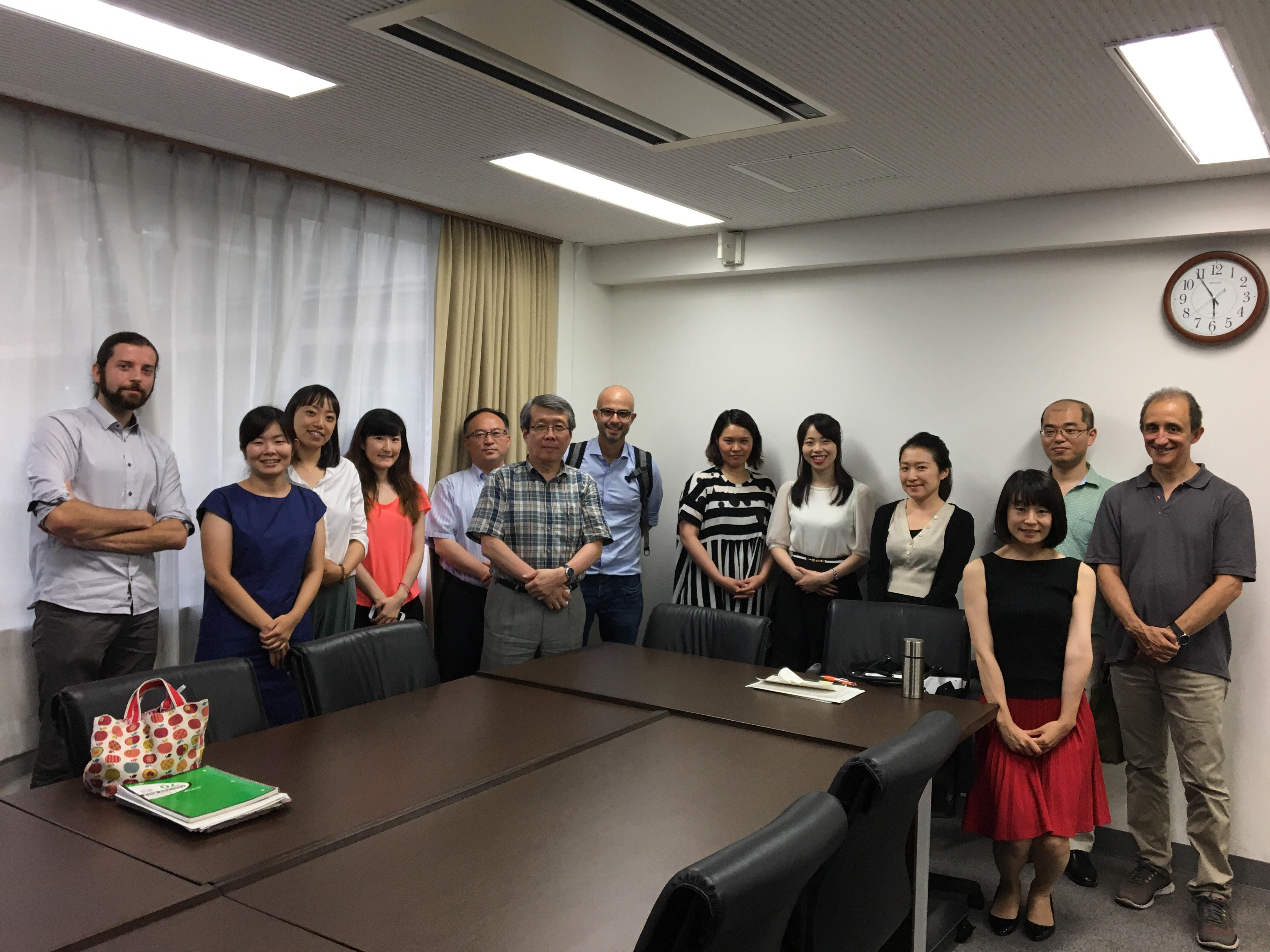2018.07.19
GHC若手研究者ワークショップ / Young Researchers' Workshop in 2018 (2018.7.11)
2018年7月11日(水)午後、
1.Yu-Han Serena Ma (Ph.D candidate in East Asian Studies, Princeton University)
”Serving the Nation: Education and State Ideology in Late Meiji and Taishō Japan”
2.Pierre-Emmanuel Bachelet (Ph.D candidate in History, University of Lyon)
”Networking early modern Japan-Vietnam relations: William Adam’s 1617 travel to Hôi An”
3.Yang-Yu (Ph.D. in Art History(2018), Columbia University)
”Competition and Collaboration: Rediscovering the Urban Dynamics in Manchuria,1898-1932”
4.Yuko Nakamura (Ph.D candidate in Buildings-Landscapes-Culture, the University of Wisconsin-Milwaukee)
“Socializing Ladies and the Making of Counterpublics: Gender, Class, and Public Space in Modern Tokyo”
The first GHC Young Researchers’ Workshop for this academic year was held in the afternoon of July 11, 2018. The aim of the meeting was to have the post-doctoral researchers and graduate school students who have been accepted from overseas by research representative Haneda give brief reports on the contents of each of their research projects and for the participants to engage in exchanges of views and information. As shown below, the reporters this time were four young researchers from the USA and France.
1.Yu-Han Serena Ma (Ph.D. candidate in East Asian Studies, Princeton University) ”Serving the Nation: Education and State Ideology in Late Meiji and Taishō Japan”
2.Pierre-Emmanuel Bachelet (Ph.D. candidate in History, University of Lyon) ”Networking early modern Japan-Vietnam relations: William Adam’s 1617 travel to Hôi An”
3.Yang-Yu (Ph.D. in Art History (2018), Columbia University) ”Competition and Collaboration: Rediscovering the Urban Dynamics in Manchuria,1898-1932”
4.Yuko Nakamura (Ph.D. candidate in Buildings-Landscapes-Culture, the University of Wisconsin-Milwaukee) ”Socializing Ladies and the Making of Counterpublics: Gender, Class, and Public Space in Modern Tokyo”
In addition to more than ten young researchers, centering on GHC junior members, Professor Alessandro Stanziani (EHESS), currently visiting researcher at the Institute for Advanced Studies on Asia, also attended, lively and enthusiastic discussions taking place regarding the contents of each of the reports. The subject matter of the reports varied from a doctoral dissertation outline by a student who had only recently entered the doctoral program to a presentation of one section of a completed doctoral dissertation by a post-doctoral student. Nevertheless, both reporters and participants were all able to find something of significant interest in the questions and comments generated in the context of global history and in the ensuing discussions with the participants from diverse backgrounds. In particular, a deep impression remained regarding exchanges of views on the effectiveness and limitations of the categories of human organizations used when attempting to comprehend or explain the past, which was a common feature noted in some of the reports. One further seminar of a similar nature is scheduled to be held in the fall of this academic year.
(HANEDA Masashi)
























